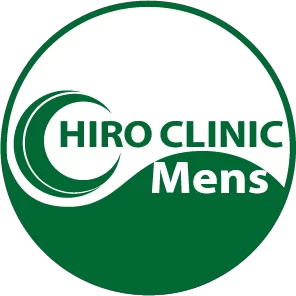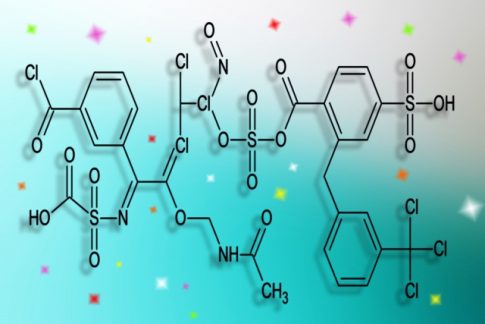Introduction
Androgenetic Alopecia (AGA) is a hair loss problem faced by many men. Recent studies have shown that vitamin D plays an important role in hair health and the progression of AGA. This article details the relationship between AGA and vitamin D and provides information on how to consume vitamin D and effective countermeasures.
Vitamin D Overview
1. Role of Vitamin D
Vitamin D is a fat-soluble vitamin and is important for bone health.There are two main types
Vitamin D2 (ergocalciferol): plant-derived vitamin D, obtained primarily from food.
Vitamin D3 (cholecalciferol): animal-derived vitamin D, synthesized in the skin through food and sunlight exposure.
2. Vitamin D Action
Vitamin D is involved in many physiological functions, including
Promotes calcium absorption: essential for bone formation and maintenance.
Regulates immune function: supports normal functioning of the immune system.
Regulation of cell growth: regulates cell proliferation and differentiation.
Relationship between AGA and vitamin D
1. Research Background
Several studies have shown that vitamin D affects hair follicle health and hair growth. The vitamin D receptor (VDR) is involved in the hair follicle growth cycle and its deficiency can cause hair loss.
2. Vitamin D deficiency and AGA
Vitamin D deficiency can hinder hair growth and exacerbate the progression of AGA. Specifically:
Miniaturization of hair follicles: Vitamin D deficiency inhibits follicle growth and causes hair to become thinner and shorter.
Shortened growth phase: Vitamin D deficiency may shorten the growth phase of hair and prolong the resting phase.
How to take vitamin D
1. Sunbathing
Vitamin D is synthesized in the skin through exposure to sunlight. The following methods should be used to ensure effective sun exposure:
Appropriate time of day: morning and evening sun exposure is recommended to avoid sunburn.
Short periods of time are sufficient: 15 to 30 minutes of moderate sun exposure per day is sufficient.
Increase exposed area: Exposing arms and legs to sunlight promotes vitamin D synthesis.
2. Dietary intake
Consume foods rich in vitamin D actively:
Fish: Fatty fish such as salmon, mackerel, and sardines.
Eggs: Egg yolks are particularly rich in vitamin D.
Mushrooms: Mushrooms, especially those exposed to ultraviolet light, contain high levels of vitamin D.
Dairy products: milk and yogurt fortified with vitamin D.
3. Use of supplements
If diet and sun exposure alone do not provide sufficient vitamin D, consider using supplements:
SUPPLEMENT SELECTION: Supplements containing vitamin D3 (cholecalciferol) are recommended.
Adequate intake: The recommended daily intake for adults is 600-800 IU. However, the appropriate dosage should be determined under the guidance of a physician.
Be careful not to overdose on vitamin D
Because vitamin D is a fat-soluble vitamin, excess intake can accumulate in the body and negatively affect health.Risks of overdose include
Hypercalcemia: excessive calcium levels in the blood can cause kidney and heart problems.
Kidney stones: Excess calcium increases the risk of forming stones in the kidneys.
Combination of vitamin D and AGA treatment
1. Concomitant use with oral medications
Vitamin D intake may enhance the effectiveness of AGA treatment when used in combination with oral medications such as finasteride and dutasteride.
Synergistic therapeutic effects: Vitamin D supports follicle health and maximizes the effects of oral medications.
2. Concomitant use with topical medications
Topical medications such as minoxidil in combination with vitamin D are also effective.
Hair growth promotion: The blood circulation stimulating effect of topical application and the follicle supporting effect of vitamin D have a synergistic effect.
Review of Lifestyle
1. Improved Nutritional Balance
In addition to vitamin D, take a good balance of other nutrients necessary for hair health, such as zinc and B vitamins.
2. Moderate Exercise
Exercise stimulates circulation and supports overall health.Incorporate moderate exercise into your daily routine.
3. Stress Management
Stress can exacerbate the progression of AGA.Adopt a habit of relaxation by meditating or taking up a hobby.
Summary
Vitamin D plays an important role in reducing the progression of AGA and maintaining hair health.Appropriate intake of vitamin D through sun exposure, diet, and supplements, in combination with oral and topical medications, can maximize the effectiveness of AGA treatment. In addition, it is also important to review lifestyle habits, incorporating improved nutritional balance, moderate exercise, and stress management. By comprehensively implementing these measures, you can maintain healthy hair and reduce AGA problems.











